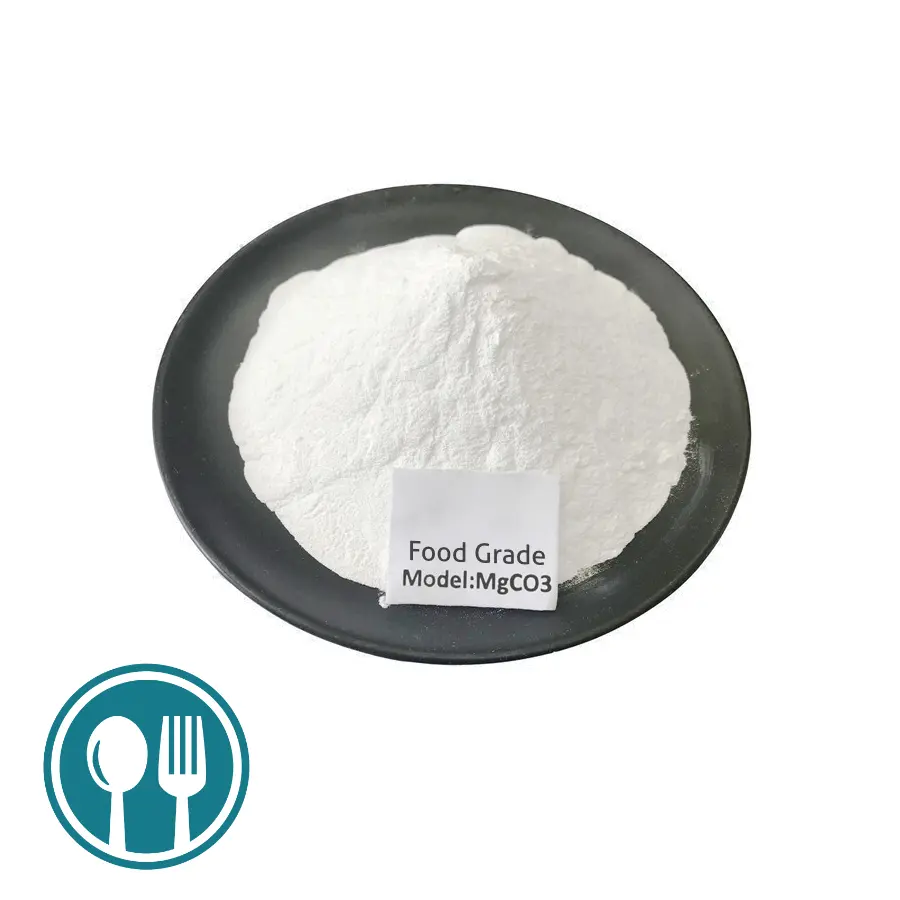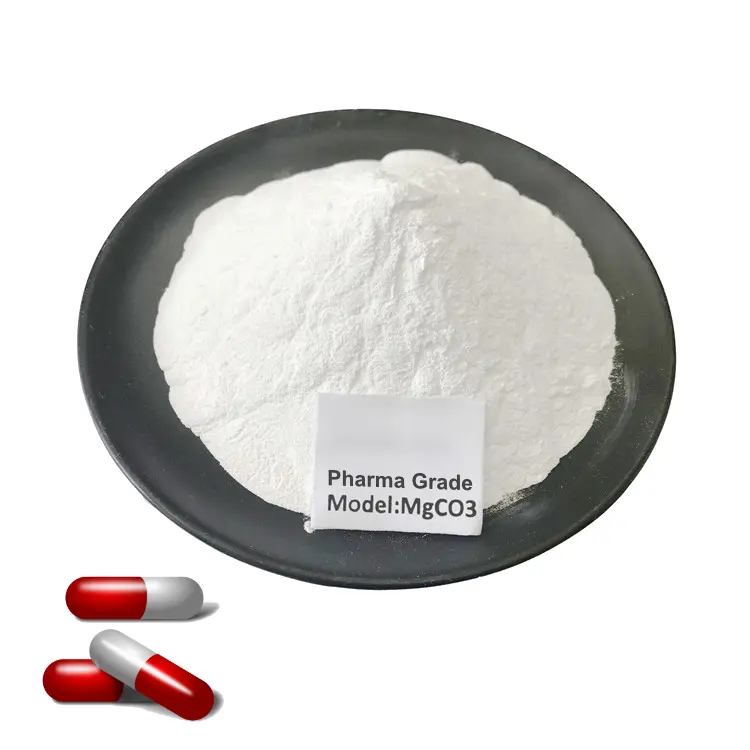Magnesium carbonate is a common inorganic compound. The chemical formula is MgCO3, which has the characteristics of white tasteless and insoluble water. It is an important industrial raw material and daily chemicals, which are widely used in our daily life.

food additives
Magly carbonate, as a food additive, has a wide range of applications in the food industry. There are mainly the following functions:
• Adjustment of food acid and alkali: Magnesium carbonate is an alkaline substance that can neutralize acids in food and regulate the pH of food. For example, adding magnesium carbonate in yogurt can neutralize the sour taste in yogurt, making it better.
• Prevent food blocks: Magnesium carbonate has hygroscopic absorption, can absorb water in food and prevent food clumps. For example, adding magnesium carbonate to frozen foods can prevent quick -frozen food from dehydrating during thawing and maintain the taste and quality of food.
• Extending food shelf life: Magnesium carbonate has antibacterial effects, can inhibit the growth and reproduction of microorganisms in foods, and extend the shelf life of food. For example, adding magnesium carbonate to meat products can prevent meat products from discolored and extend the shelf life of meat products.
• Improve food taste: magnesium carbonate can improve the taste of food and make it more fluffy and softer. For example, adding magnesium carbonate to baking goods can make baked goods more fluffy and soft.
Magnesium carbonate has a wide range of applications in the medical field

Treatment of gastrointestinal diseases
Magnesium carbonate is a commonly used acid anti -acid drug. Its mechanism is to neutralize gastric acid, which improves the pH value of the stomach content, thereby alleviating symptoms such as gastric pain, heart burning, and acid reflux caused by excessive gastric acid. Magly carbonate has a protective effect on gastric mucosa and can be used to treat gastrointestinal diseases such as digestive ulcers, superficial gastritis, and esophagitis.
• Gastrointestinal ulcer: Magnesium carbonate can neutralize gastric acid, reduce stimulation of ulcer surfaces, and promote ulcer healing. It is often combined with other anti -acid drugs, H2 receptor blockers or proton pump inhibitors.
• Symatic gastritis: magnesium carbonate can neutralize gastric acid, protect gastric mucosa, and relieve symptoms of gastric discomfort.
• Speck tubeitis: Magnesium carbonate can neutralize gastric acid, reduce stimulation of esophageal mucosa, and relieve esophageal burning sensation.
Auxiliary therapy
Magly carbonate can also be used to the following diseases:
• Diarrhea: Magnesium carbonate can adsorb water and harmful substances in the intestine and relieve diarrhea symptoms. It is often used with other diarrhea.
• Bile reflux gastritis: magnesium carbonate can neutralize gastric acid, reduce bile refurbishment, and alleviate the symptoms of gastric discomfort. Combined with H2 receptor blockers or proton pump inhibitors.
• Stomach pain during pregnancy: magnesium carbonate can neutralize gastric acid and relieve symptoms of stomach pain. Pregnant women should be used under the guidance of doctors or pharmacists.
Cosmetics and personal care products

Magnesium carbonate is a natural mineral that has the effects of absorbing oil, regulating sebum secretion, and concealing, so it is widely used in cosmetics and personal care products.
Absorb oil
Magly carbonate has strong adsorption, which can adsorb the excess oil on the surface of the skin, making the skin refreshing and not greasy. Therefore, magnesium carbonate is commonly used in cosmetics and personal care products for oily skin, such as oil -controlled facial cleansing milk, oil -absorbing paper, and loose powder.
Adjust sebum secretion
Magly carbonate can regulate sebaceous secretion of sebaceous glands, reduce oil secretion, and make the skin not easy to get oil. Therefore, magnesium carbonate is often used in cosmetics and personal care products for acne, acne skin, such as acne facial milk, acne mask, and acne powder.
Conceal
The particles of magnesium carbonate are small, and can be evenly applied to the skin, covering pores and flaws, making the skin look smoother and more delicate. Therefore, magnesium carbonate is commonly used in base makeup products, such as foundation liquid, powder, concealer, etc.
Other effects
In addition, magnesium carbonate also has certain effects such as anti -inflammatory, sterilization, itching, so it is also used in some cosmetics and personal care products such as soothing skin, anti -inflammatory and sedatives, such as masks, toner, lotion, etc.


